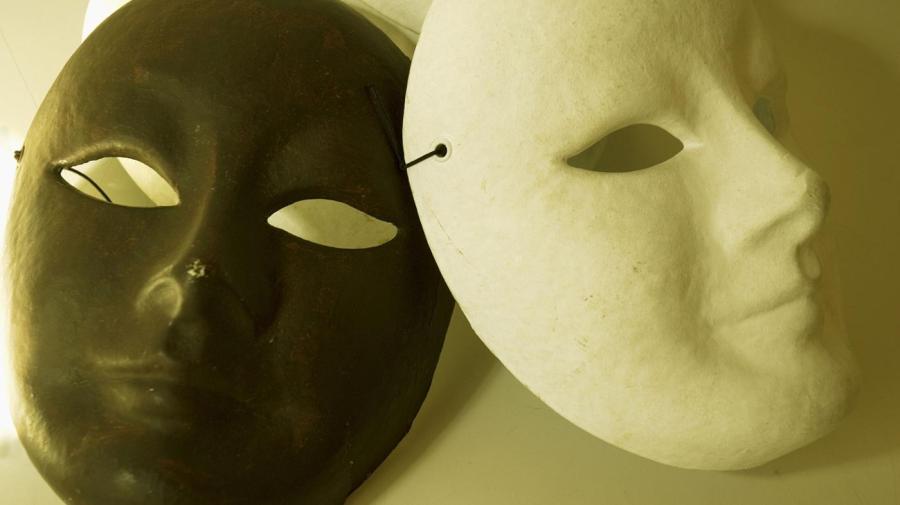Why Did Ancient Greek Actors Wear Masks?

Ancient Greek actors wore masks to represent the various characters they played, to help them project their voices and to help people sitting in seats far from the stage have some sense of character expression.
Thespis was the first of the Greek drama writers to utilize a mask. It is thought that the tradition stemmed from the Dionysian cult. In ancient Greek theater, only men could perform as actors. This meant that when males played female roles, they needed some way in which to convey this. They also needed some way to convey emotion, so they used masks.
Many actors also played multiple roles in Greek plays, so the masks helped differentiate between the various characters they were playing; when they switched characters, they switched masks. It is also thought that the design of the masks helped project the voices of the actors when they performed, making it easier for everyone in the amphitheater to hear them. For those sitting far from the stage, the masks helped convey emotion through their intensely exaggerated expressions. The chorus members also wore masks in Greek theater, though their masks were distinctly different from those of the main actors. Masks worn in tragedies were more realistic than those worn during comedies.





